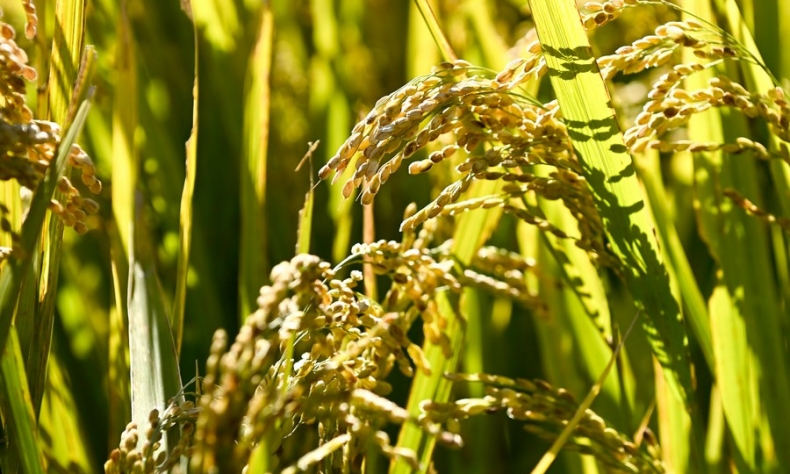Strengthening China-ASEAN Agricultural Cooperation

China and ASEAN enjoy broad prospects for cooperation in the development and promotion of rice breeding technology.
China’s food prices have largely remained stable against the backdrop of a sharp rise in global prices and the subsequent food security crisis. Data from the National Bureau of Statistics of China released on July 15 showed that the country’s grain prices rose by 2.4 percent in the first half of this year. Is China safe from food security issues? How can China and ASEAN strengthen cooperation on agriculture? Zhang Yunhua, deputy director of the Research Department of Rural Economy at the Development Research Center of the State Council of China, sat down with China Report ASEAN to share his opinion.
China ASEAN Report: How will rising global food prices affect China’s domestic market?
Zhang Yunhua: China’s food security strategy always emphasizes domestic food supply, which has helped the country ensure self-sufficiency in grain and sufficient supply of staple foods for years. But China relies on imports to fill gaps in the supply of soybeans and corn, so the roaring food prices in the international market still affect China’s domestic market.
Since the beginning of this year, some countries have adopted protective measures to reduce exports of grains, leading to rising import prices for China. With imports becoming less attractive, China’s domestic food market is likely to feel some pressure to maintain stable prices.

China-ASEAN Report: China and ASEAN have seen increased cooperation in agricultural technology. What do you expect from future cooperation in this area?
Zhang Yunhua: China imports different food items from multiple countries and regions. Rice is the most important staple food for Chinese people, and ASEAN remains a primary source of China’s rice imports as well as a main partner in research and development of rice production technology thanks to geographic proximity, similar climate, and good relations.
China and ASEAN enjoy broad prospects for cooperation in the development and promotion of rice-breeding technology. I believe the two sides can engage in greater cooperation in rice production and trade. Establishing a China-ASEAN rice cooperation alliance, for example, would be a solid step towards enhancing bilateral cooperation in food security.
China-ASEAN Report: Climate change is now fueling global warming and exacerbating extreme weather. How will this affect agricultural production in China?
Zhang Yunhua: Almost everyone agrees that rising temperatures and extreme weather caused by climate change will hurt agricultural production, but we can still adapt to the changing climate and improve food production accordingly. For example, regions with a short frost-free period are going to benefit from a warmer climate.
Weather data in recent decades have indicated it could get warmer and wetter in northern China. Rising temperatures and increased precipitation are expected to help improve grain output in the northern region. In terms of coping with climate change, we should leverage our advantages and outsource our disadvantages. Greater efforts should be made to improve farmland, irrigation, and drainage infrastructure and optimize usage of farmland to maintain China’s agricultural development momentum.
 Facebook
Facebook
 Twitter
Twitter
 Linkedin
Linkedin
 Google +
Google +










